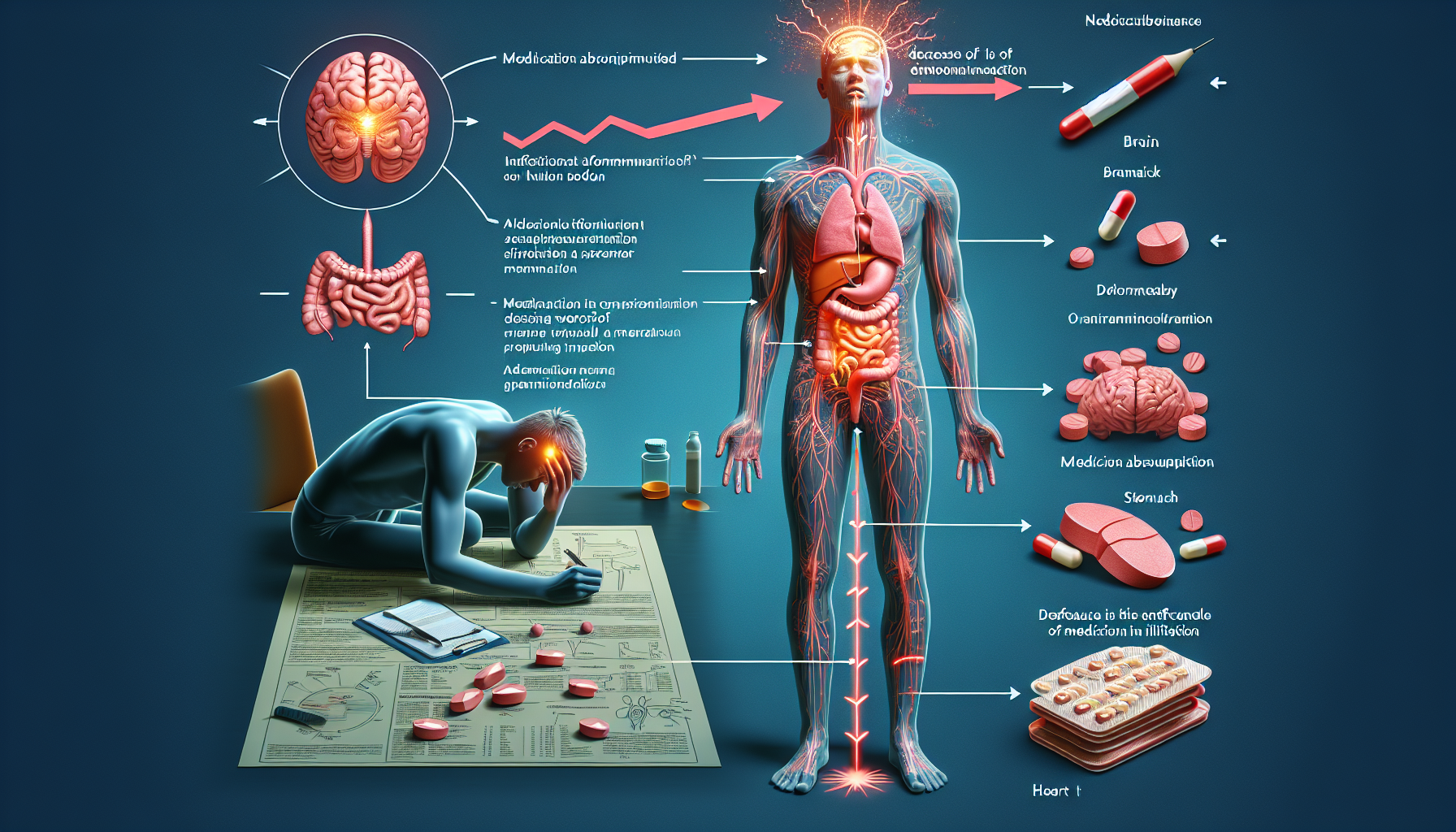In an age where stress has become an inescapable aspect of daily life, its influence on health is a growing concern. Beyond the familiar feelings of anxiety and tension, stress can significantly affect the body’s response to medications and supplements, potentially altering their effectiveness and, consequently, our overall well-being.
The Underlying Science of Stress and Its Physiological Effects
Stress triggers a cascade of hormonal responses in the body, most notably the release of cortisol and adrenaline. These hormones are part of the body’s fight-or-flight response, preparing the organism to deal with immediate threats. This response, while potentially life-saving in short bursts, can be detrimental when activated continuously, as often seen in chronic stress situations.
Elevated cortisol levels can lead to a number of physiological changes such as increased heart rate, elevated blood pressure, and a surge in glucose levels as the body prepares for immediate energy use. These changes can also disrupt normal digestive activity, immune response, and even cognitive function, impacting areas such as brain health.
The Direct Impact on Medication and Supplement Absorption
The digestive system, which is closely linked to stress through the gut-brain axis, is particularly vulnerable. Stress can alter the gastrointestinal environment, affecting how medications and supplements are broken down and absorbed. For instance, increased cortisol can lead to reduced gastric secretion and motility, which can impede the absorption of orally administered drugs and nutrients.
How Stress Affects Medication Metabolism and Excretion
Apart from absorption, stress can also influence how medications are metabolized and excreted. The liver, responsible for the breakdown of many substances, can be affected by stress-induced hormonal changes, potentially altering the rate at which medications are processed. This can either diminish their efficacy or increase the risk of side effects if the medication remains in the body longer than intended.
The Role of Stress in Supplement Efficacy
Similarly, the efficacy of supplements, particularly those aimed at cardiovascular health, can be compromised under stress. The body’s prioritization of stress responses can redirect resources away from the absorption and utilization of essential nutrients, undermining the benefits of supplements designed to support heart function and reduce cholesterol levels.
Stress and the Immune System: A Double-Edged Sword
Chronic stress is notorious for its ability to weaken the immune system, making the body more susceptible to infections and diseases. This can have a two-fold effect on medication and supplement efficacy. First, a weakened immune system may require higher doses of medication to achieve the same effect. Second, certain supplements aimed at bolstering the immune system, like those containing antioxidants, may have their absorption and function impaired, as discussed in the article on antioxidant supplements and their role in disease prevention.
Strategies to Mitigate the Impact of Stress on Medication and Supplement Use
To counteract the adverse effects of stress on medication and supplement efficacy, several strategies can be employed. Adherence to prescribed medication timing and routine, as highlighted in the article on the importance of medication timing and routine, is crucial. Ensuring medications are taken as directed can help maintain steady levels in the body, regardless of stress-induced physiological changes.
Mindfulness and Stress Management Techniques
Incorporating stress management techniques such as mindfulness, meditation, or yoga can help regulate the body’s stress response, potentially normalizing the absorption and metabolism of medications and supplements.
Nutritional Support to Counteract Stress
A well-balanced diet rich in nutrients can also support the body’s ability to cope with stress. Specific nutrients, like magnesium and omega-3 fatty acids, have been shown to have a calming effect on the nervous system and can be beneficial in managing stress levels.
Regular Exercise
Regular physical activity is another effective way to manage stress. Exercise can lower cortisol levels and improve blood circulation, aiding in the efficient delivery and absorption of medications and supplements.
Professional Consultation and Personalized Plans
It is essential to consult healthcare professionals when managing medication and supplement routines, especially under chronic stress. Pharmacists and physicians can offer personalized advice tailored to individual needs and circumstances.
Seeking Further Information and Support
For those interested in exploring further, there are several niche resources that provide in-depth information on the relationship between stress and medication efficacy:
- Stress and the Gut-Brain Axis offers insights into how stress affects gastrointestinal function and, consequently, drug absorption.
- Cortisol and Drug Metabolism examines the effects of stress hormones on the liver’s ability to metabolize medications.
- Mindfulness-Based Stress Reduction Techniques provides a comprehensive guide to practices that can help mitigate the impact of stress on health and medication effectiveness.
By understanding the complex interplay between stress and the body’s response to medications and supplements, individuals can take proactive steps to ensure optimal efficacy of their treatments. Managing stress is not just about improving mental health; it’s about safeguarding the body’s ability to heal and function at its best.



